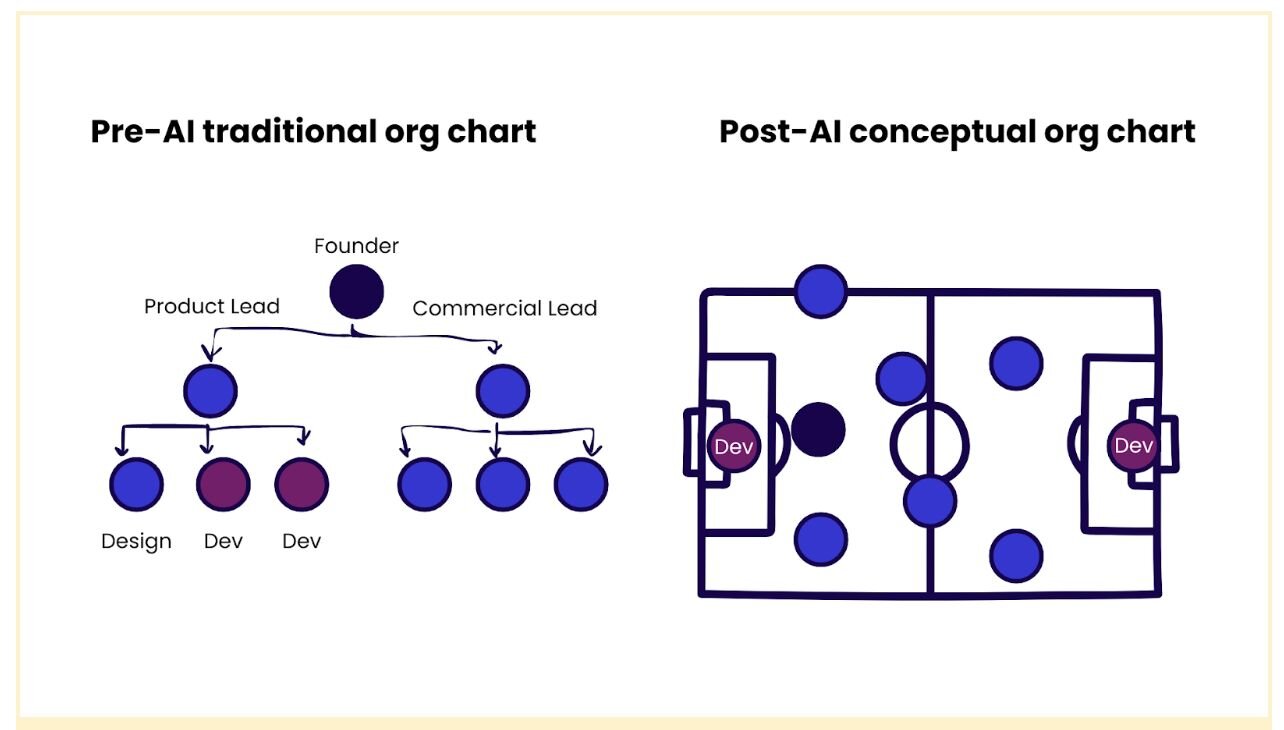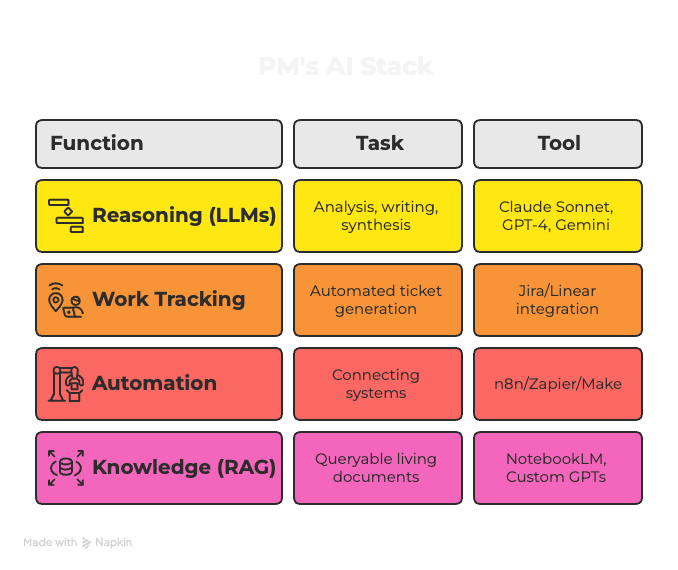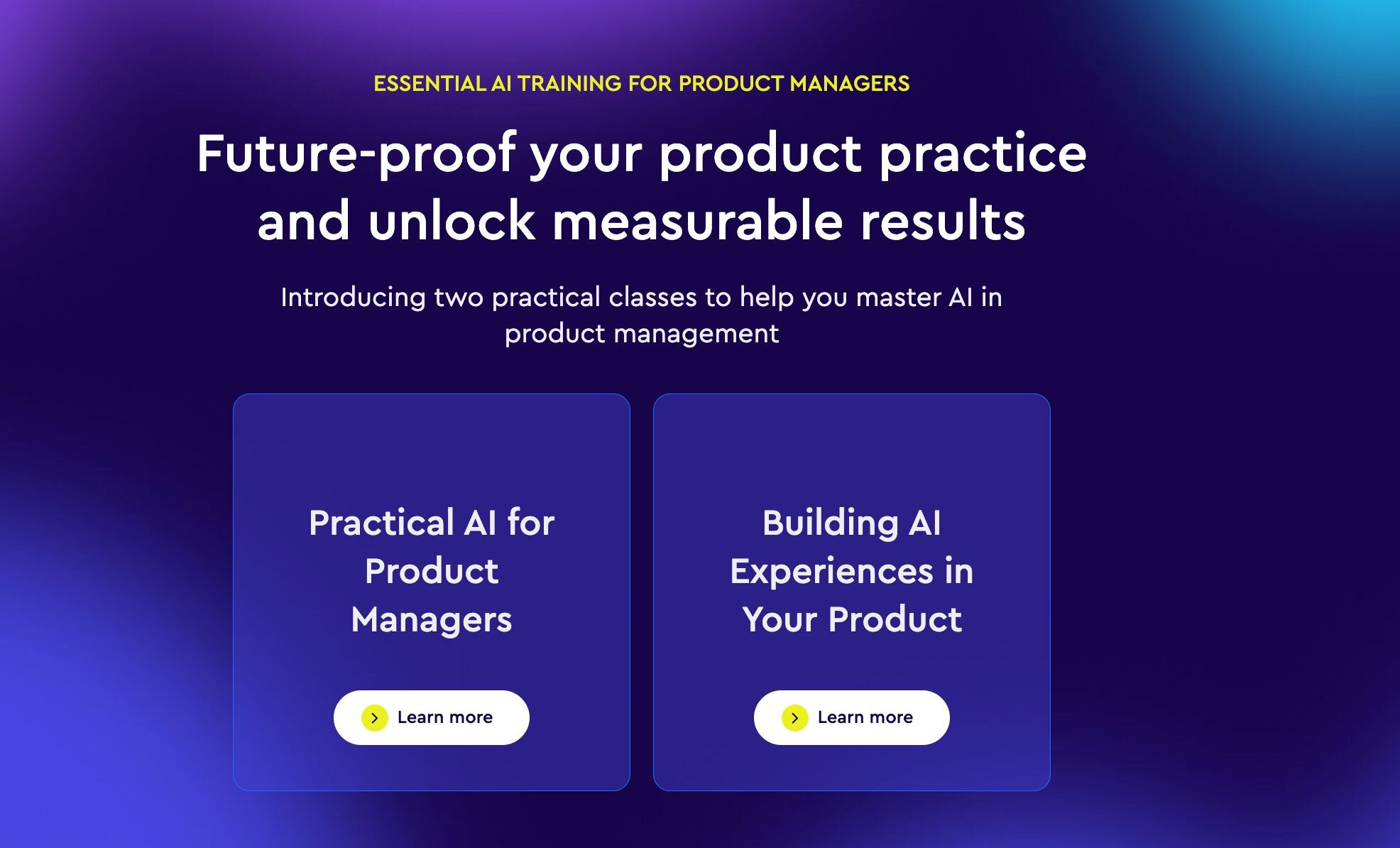This article is part of our AI Knowledge Hub, created with Pendo. For similar articles and even more free AI resources, visit the AI Knowledge Hub now.
Artificial intelligence (AI) and machine learning are everywhere nowadays and for a good reason! Undoubtedly, these powerhouses are unleashing and expanding the true potential of every niche. In particular, when it comes to business expansion and product management, AI opens the door to a plethora of opportunities.
Product management and AI
According to a study conducted by IBM, product managers are one of the top ten user groups of AI in organizations today. Furthermore, 21% of product managers use AI every day! These findings prove that the introduction of AI into the realm of product management has opened up new avenues for growth and competitiveness. This is another reason why companies are increasingly adding AI systems and AI product managers to their product teams, in an effort to take advantage of AI's potential for commercial expansion.
So, how are AI product managers different from traditional managers? In addition to what traditional product managers do, AI product managers use technical expertise to harness the potential of AI to elevate product management processes. AI product leader Marily Nika, working at Meta’s reality lab, says that "all product managers will be AI product managers eventually."
AI product managers are knowledgeable about a multitude of AI and machine learning algorithms and how to use them to transform the product development journey. This makes it clear that the future of product management is all set to embark on an innovative journey driven by the power of AI.
Let us learn more about how AI is a game-changer and introduces a new dimension to product management.
Opportunities in product management with AI
Data Analysis and Predictive Modeling
As mentioned earlier, as product managers, you have the provision for leveraging innumerable benefits from AI. Data plays a key role in your product development process and is the cornerstone for curating what is best for the customers and the business. This is where AI comes into the picture!
AI can assist you in strategically gathering and analyzing massive amounts of data to better understand consumer behavior, market trends, and company growth trajectories. Using AI technology, product managers like you can make data-driven decisions based on real-time data instead of relying on their intuition.
AI-powered predictive modeling analyses past data to predict future customer demands and behavior. AI could forecast the usability score of your product or feature through this examination. This analysis can aid you in determining the inclusion or exclusion of specific products/features/services of your business.
Better customer experience
As product managers, you spend a considerable amount of time understanding the needs of your users. You strive to create a product that leaves a lasting impression on users and solves their real problems.
Data analysis and predictive modeling help you to learn your users/customers inside out. This helps you segment your customers based on their behavioral patterns and trends. This can help you determine the preferences of your users and can improve your product accordingly.
Offering personalized experiences to your customers can further increase their satisfaction and reinforce their loyalty to your company. This can greatly enhance customer retention, positively influencing brand value and the business.
Increased efficiency in product development
On a day-to-day basis, you engage in several manual tasks like data entry, data analysis, and a lot more. AI technologies can effortlessly automate these time-consuming tasks for you, letting you focus on more important tasks.
You can work cross-functionally and work more effectively by using AI-powered solutions that enable real-time sharing of ideas, feedback, and suggestions. This can hasten the design process, reduce errors, and boost total efficiency.
Artificial intelligence technologies have the capability to automate a multitude of tasks that are otherwise done manually. This can save a lot of time for you and enables you to focus on more important tasks.
Improved decision-making
Decision-making is one of the hardest tasks for product leaders like you. You have to be focused while making decisions, as it largely impacts the success of the product. This is where AI can be your ultimate ally!
AI's unrivaled capacity to evaluate massive amounts of data helps you make informed decisions. This capability is particularly helpful when dealing with user feedback data since manually searching through the data can be time-consuming and overwhelming.
Humans are all prone to biases, which might influence our judgment. As AI is fact-based, it can assist you in eliminating bias from your decision-making process. In addition, you may utilize these insights to improve your product by learning more about user behavior, preferences, and pain points.
However, product management platforms like Zeda.io can streamline your feedback management process. For example, it makes compiling feedback from several sources easier onto a single dashboard. In addition, its features, like upvoting and filtering of feedback, enable you to fully understand customer needs.
Cost reduction
By examining data on inventory levels, production plans, and shipping logistics, AI can help supply chain management be more efficient. As a result, AI systems or automation of manual tasks can bring down costs, increase efficiency, and minimize waste.
AI can help you identify flaws and quality problems early on in the production cycle, cutting down on time-consuming manual tasks and rework. Moreover, through automation, a myriad of time-consuming tasks your product teams perform is taken care of through artificial intelligence and machine learning.
Aside from improving pricing methods, machine learning algorithms can help lower the expenses associated with pricing errors. Moreover, AI can help in marketing through campaigns that target interested audiences based on their preferences and history, saving businesses money by avoiding irrelevant outreach.
Challenges in product management with AI
Despite AI's revolutionary impact on the world, certain things should be considered when dealing with it. Let us break it down for you.
Data security
One of the key problems with AI is that it is vulnerable to attacks. Hence, it is vital that your organization protects its data. Check your security protocols on a frequent basis for gaps to keep your data secure. In addition, employ access control, multi-factor authentication, and other robust security procedures.
Implementation and integration
If you intend to integrate AI and machine learning into your product cycle, you should be aware that you could require a lot of resources and experience to make it work. Access to qualified data scientists, engineers, and AI product managers who can create and implement AI solutions is essential for your organization. Your organization's infrastructure may also need to undergo major changes as part of the integration process.
Algorithmic bias
A biased training algorithm, inaccurate training data, or human prejudices reflected in the data can all contribute to algorithmic bias. As a result, algorithmic bias may restrict the reach of your product or brand toward potential users or customers. Furthermore, algorithmic bias can hamper the reputation of your brand and can negatively impact your product growth.
Best practices for AI
Stay ahead of the curve
Stay current with the most recent technological developments, as AI and machine learning are continually expanding sectors. This knowledge can help product leaders leverage the benefits.
Ensuring transparency and accountability
You should ensure AI systems are accountable by ensuring they abide by ethical and legal principles. Also, it is critical to minimize any unfavorable consequences resulting from its biased or discriminatory outputs. As a result, you may regularly monitor the system as product managers to prevent biases and increase transparency.
Regularly monitor and evaluate AI performance
Your organization must regularly monitor and evaluate the performance of its AI solutions. They must be able to measure the effectiveness of their AI solutions and make changes when necessary.
Set clear objectives
You should set clear objectives for your AI solutions. You should identify the objective using an AI solution for product management. Also, you must ensure that it promotes your product and business expansion while speeding up the development process.
Final thoughts
AI is transforming how we approach product development and elevating it to a whole new level, from automating laborious tasks to predicting customer preferences. Machine learning and AI are transforming product management, giving businesses new opportunities to develop products that better meet customers' needs.
However, data security, algorithmic bias, and ethical concerns are just a few of AI's significant problems. Your organization must be aware of these challenges and adopt best practices to ensure your AI solutions are transparent, accountable, and ethical. Using AI in this way enables businesses to foster innovation and growth while safeguarding the rights and privacy of their customers.







